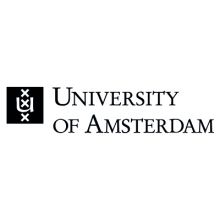Leading Dutch universities are begging the country’s government to place limits on an influx of international students that has left campuses “bursting at the seams”.
Provisional figures show a 4 per cent rise in total enrolment in Dutch universities this autumn, driven mainly by foreign bachelor’s and master’s enrolments. International learners represent 23 per cent of this cohort, with the sharpest rise at undergraduate level, where 29 per cent of all students come from abroad – up from 24 per cent in the two previous years.
Of the 80,000-strong international cohort, 60,000 are from within the European Economic Area (EEA), which means that they are treated in the same way as Dutch students and pay the same fees.
The Association of Universities in the Netherlands (VSNU), which represents 14 research universities, has asked the government to give institutions more control over recruitment.
“In concrete terms, our campuses are bursting at the seams. There are too few lecture halls for teaching. There is also a large and increasing housing shortage in Amsterdam,” said Geert ten Dam, president of the University of Amsterdam (UvA).
She said that nearly one in three students at UvA now come from abroad and that their numbers have tripled over the past five years, while the number of Dutch students has risen by just 6 per cent over the same period.
Professor ten Dam said that the university had stopped recruitment abroad several years ago. “International students nevertheless continue to find their way to us.”
In the Netherlands, all students who meet entrance requirements are typically admitted, and while it is possible to impose caps on course recruitment, this is discouraged by the government as a last resort, explained Pieter Duisenberg, the VSNU president.
“There is considerable pushback, both in the political arena and from students, when universities advocate for more control over admissions,” he said.
Instead of course caps, VSNU has suggested four approaches to manage surging international student growth: a course diversity criterion for admissions, a cap on students for English-language courses only, a cap on students from outside the EEA and a rise in tuition fees for non-EEA students.
Mr Duisenberg said that despite having first suggested such controls in 2018, “nothing has been done to date”. VSNU said that the issue of spiralling international demand was made more acute by a decline in government funding per student from €19,500 (£16,390) in 2000 to €15,500 in 2021, a squeeze that Professor ten Dam said leads to teaching staff having to do “substantial overtime”.
She said her preference was to start by putting caps on English-language courses, which made up about 28 per cent of bachelor’s and 77 per cent of master’s courses in 2020, according to VSNU data. “You can then allow quality and diversity to play a role in the selection criteria,” she said, adding that tuition fees for non-EEA students could increase if scholarships were available for those who needed them.
Standard fees for EEA students are €2,168 per year currently, compared with between €6,000 and €20,000 for learners from further afield.
While instruction in English is a major draw for foreign learners and so a factor in the influx, both Mr Duisenberg and Professor ten Dam said they were reluctant to limit these courses, citing many Dutch students’ desire to learn in English.
The situation is complicated by talks to form a new Dutch coalition government becoming the longest on record. Observers say universities could win a settlement covering international student controls from the next administration, although this would require concessions.
“They would only get such a thing if they would give also something back,” said Barend van der Meulen, head of the Center for Higher Education Policy Studies at the University of Twente. “If there would be a kind of agreement that they would reduce the number of programmes in English, then they might find some political willingness to think about these steering instruments.
“The bigger problem is that if you have this selection instrument then it would also apply to the Dutch students, and there is no political willingness to restrict the access of Dutch students to Dutch universities.”
The Erasmus Student Network, which represents international students, said that the main issue was a shortage of housing.
“We hear of a lot of international students who come here and have to stay in hostels, and then in the end go back and have to stop their studies because of this problem,” said Annelot Bulten, president of the network’s Netherlands branch.
She said that VSNU’s suggestions to control numbers were a short-term solution and that investment should first go into building accommodation. “We shouldn’t decrease the number of international students. I think we should focus more on how to manage internationalisation better,” said Rik Peelen, the network’s education officer.
POSTSCRIPT:
Print headline: Dutch plead for limits on international recruitment
Register to continue
Why register?
- Registration is free and only takes a moment
- Once registered, you can read 3 articles a month
- Sign up for our newsletter
Subscribe
Or subscribe for unlimited access to:
- Unlimited access to news, views, insights & reviews
- Digital editions
- Digital access to THE’s university and college rankings analysis
Already registered or a current subscriber? Login










